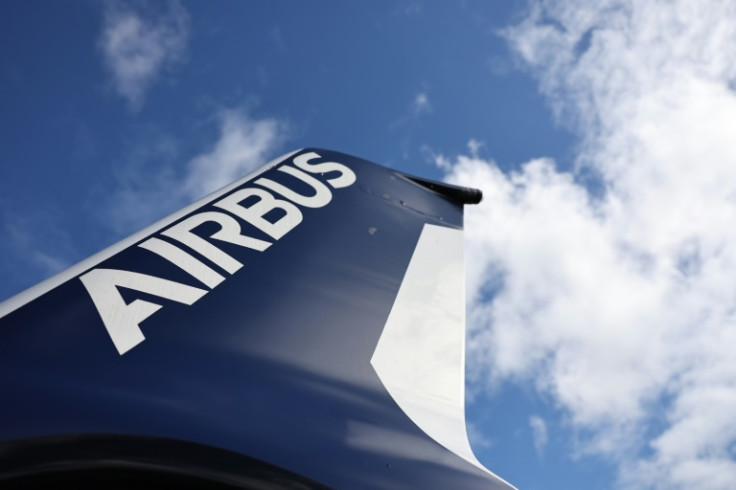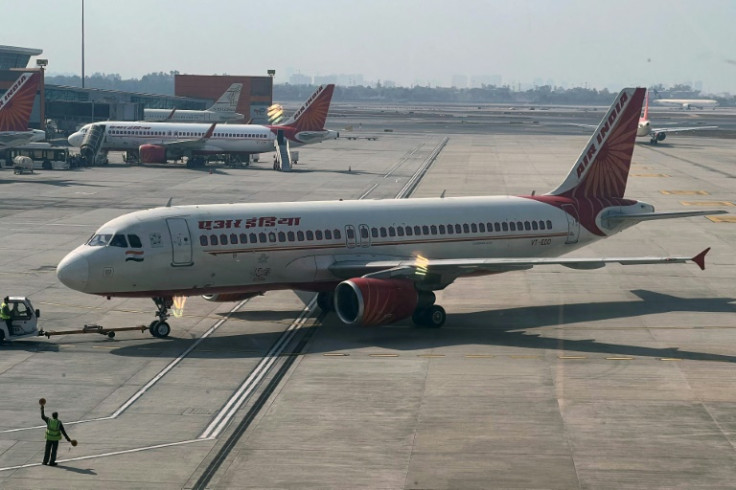Air India To Buy 250 Airbus Planes In 'Historic' Deal

Air India will buy 250 Airbus planes in a deal aimed at transforming the former national carrier, it said Tuesday, after decades as a monumental burden on the public purse.
The airline's first new aircraft purchase since 2006 is part of an ambitious plan to return to profitability in the world's third-biggest air transport market.
It has signed a letter of intent to buy 210 narrow-body A320neo jets and 40 long-haul A350 aircraft -- with an unspecified number of options for more -- as it plots to capture domestic market share and turn Indian airports into global travel hubs.
Media reports said Air India is planning to unveil a similar purchase agreement with Boeing in the near future.
Combined, the two deals could represent the single biggest fleet purchase in aviation history.
"We are going through a massive transformation," said Air India chairman N. Chandrasekaran, announcing the Airbus agreement with French President Emmanuel Macron and Indian Prime Minister Narendra Modi in virtual attendance.
"One of the most important things is a modern fleet which can perform for all routes."
Air India was founded by tea-to-steel conglomerate Tata Group in 1932 and the Indian government bought a majority stake after independence.
But by the end of the century, the venture was struggling to compete with Gulf carriers and no-frills airlines, starved of investment and racking up billions of dollars in losses that dragged on the public purse.
Tata -- also chaired by Chandrasekaran -- finally bought it back in a $2.4 billion deal a year ago.
According to Airbus forecasts, India's air traffic is expected to grow 6.6 per cent a year over the next two decades, almost twice the global average.
"Today is a historic moment for India, for Air India and for Airbus," said Airbus chief executive Guillaume Faury, saying the size of the order "demonstrates the appetite for growth in the Indian aviation industry".
The European aircraft manufacturer already has an engineering centre in the country and sources some components from Indian suppliers.
Macron said the deal highlighted the bond between Paris and New Delhi.
"I want to tell everybody that for me, this very important contract and this achievement today is one of the milestones of the in-depth strategic and friendly partnership we have between India and France," he said.
Strengthening civil aviation was an important aspect of national infrastructure, said Modi, citing estimates that India will need more than 2,000 aircraft in the next 15 years.
The announcement coincided with the Aero India show in India's tech capital Bengaluru, where leading global aviation companies are exhibiting their wares.
Air India remains the country's largest international carrier, but its domestic market share stood at only 8.6 percent in September.
It is aiming to take a 30 percent domestic share by the end of 2027 while expanding its fleet to cover more international routes.
Tata Group is well-positioned to capitalise on the burgeoning market despite the conglomerate's six-decade absence from the air travel industry, aviation consultant Mark Martin told AFP.
"They will have to recruit talent and return to the warm Indian hospitality that made it one of the top five airlines in the world in the 1960s and 1970s," he said.
New Zealander Campbell Wilson was appointed Air India's first foreign chief executive last May to overhaul operations and return it to profitability.
But the airline faced an onslaught of criticism for its response to a Wells Fargo executive who was allowed to disembark as normal after allegedly urinating on an elderly woman aboard a flight from New York late last year.

© Copyright AFP 2025. All rights reserved.




















